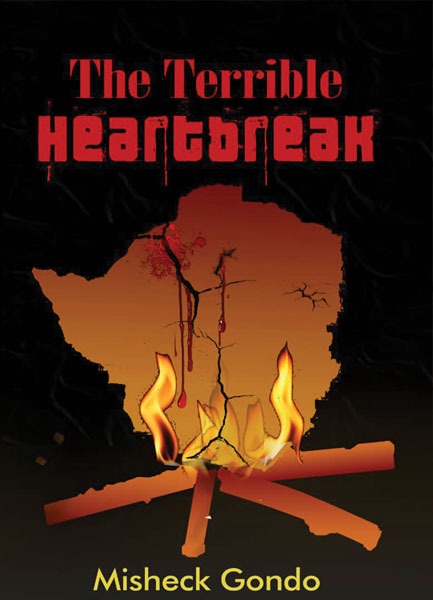
BETWEEN THE LINES:Phillip Chidavaenzi
Title: The Terrible Heartbreak Author: Misheck Gondo Publisher: Royalty Books (2019) ISBN: 978-1-77906-981-8 FOR several years, Misheck Gondo has worked as a youth leader, activist, developmentalist and political analyst. Although working with facts and data has always been common fare in his field of development work, last year he decided to branch out and unleash his creative forces, publishing his debut novella, The Terrible Heartbreak.
Themed around the subject of HIV and Aids, youth relationships, college life and national politics, the book is a recall of Gondo’s time at the University of Zimbabwe (UZ) in the late 2000s. He admits in the preface that the book was initially written between 2007 and 2009 during which time he was still a university student.
Some of the themes in the book, however, remain compelling in contemporary Zimbabwe owing primarily to their universal nature. This probably speaks to the notion that the more things change, the more they remain the same.
The book’s cover, showing a map of Zimbabwe in flames, like a teapot sitting on fire, will speak volumes to readers who have had to endure unprecedented political and economic challenges in the country, particularly over the last 20 years.
The narrative throws together a cast of colourful characters — Collin, Nyasha, Alois, Eve, Comrade Gundig, Comrade Artorias, Mayibuye and the government minister Jonso, each representing various interests and values.
Alois and Eve, who hail from the rural outskirts of Zvipani — where Alois flees political violence — reconnect and rekindle the embers of their love relationship at the UZ. They use their reconnection to share disturbing stories about the harrowing experiences many villagers went through. Some were murdered and others maimed.
Gondo uses chilling realism as the dividing line between fiction and reality disappears in the couldron of historical narratives about the horrors that opposition political party supporters went through at the hands of their rivals and opponents.
- Chamisa under fire over US$120K donation
- Mavhunga puts DeMbare into Chibuku quarterfinals
- Pension funds bet on Cabora Bassa oilfields
- Councils defy govt fire tender directive
Keep Reading
Alois, however, at first does not realise that Eve is double-crossing him with a powerful politician and government minister, Jonso.
This matrix bring to the fore a number of pertinent issues. These include how privatisation of certain services force young female students into intergenerational relationships with older men that can provide for them at university while dating their fellow male students who are potential husband material after college.
The challenge, as Gondo unpacks in his debut literary offering, is that many young women end up infected (by their older lovers) — and infecting (their student lovers) — with HIV. It is interesting, in this respect, that the students union at university gets seized with these matters, become a critical component in the national discourse on HIV and play a crucial role in dispensing knowledge about the pandemic to fellow students.
Although Alois believes Eve and him are just picking the thread from where they had left off in the past, he gets the shock of his life when he discovers there is more to the relationship than he first thought. Eve starts off by lying that her older boyfriend is her uncle, Alois soon discovers that he is being double-crossed. And he does not take it kindly. This eventually leads to the collapse of the relationship.
Through his portrayal of the students union, the author locates student activism in the paradigm of national politics as the push for students interests seem to put them on a collision course with national political leaders.
The Terrible Heartbreak is a short, simple and fast read that will take all those that have passed through the University of Zimbabwe down memory lane.
Perhaps the strength of the book lies in the fact that it ends on a positive note, with Eve making a determination to move on with her life regardless of her HIV-positive status.
Gondo should be commended for taking cognisance of developments that have taken place in the fight against HIV and Aids. Although first written at a time when contracting HIV was considered a death sentence as access to anti-retroviral therapy was limited, it had been updated to capture developments that have since taken place in terms of scaling up access to treatment.
A holder of a Master of Science degree in international relations with the UZ, Misheck Gondo, has written several papers and made presentations at high-level national, regional and international meetings.











